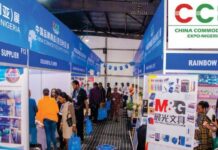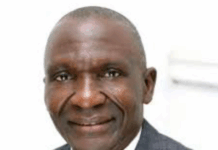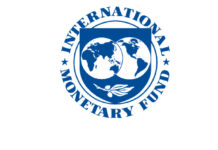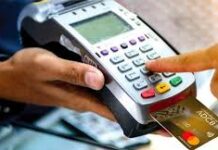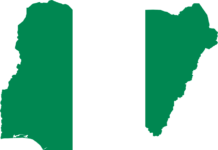
CBN’s NRBVN and the Road to $1bn, by Rahma Olamide Oladosu
For decades, Nigerians in diaspora have constituted a vital yet under-served segment of the national economy. Despite their immense contributions through remittances, investments, and professional networks, systemic obstacles have continued to limit their access to formal financial services back home. However, with the recent launch of the Non-Resident Bank Verification Number (NRBVN) platform by the Central Bank of Nigeria (CBN), under the leadership of Governor Olayemi Cardoso, a new era may be dawning, one that recognises the diaspora not just as external benefactors, but as integral stakeholders in Nigeria’s financial future.
The unveiling of the NRBVN is more than a technical rollout; it’s a strategic and symbolic gesture that positions Nigeria as ready to embrace digital innovation and inclusive financial governance. Through a collaboration with the Nigeria Inter-Bank Settlement System (NIBSS), the CBN has developed a secure, digital pathway for Nigerians abroad to remotely obtain a BVN. This move effectively dismantles one of the biggest barriers faced by non-resident Nigerians: the burden of physical presence. For the millions residing in the U.S., U.K., Canada, the Gulf states, and across Africa, accessing Nigerian financial products has been a challenge rooted not in disinterest, but in logistics and outdated systems.
Governor Cardoso’s remarks during the launch made it clear that this platform is not the final product, but rather the starting point of a broader transformation. By allowing remote BVN enrollment fortified with global-standard Know Your Customer (KYC) and Anti-Money Laundering (AML) protocols, the NRBVN stands as a testament to the CBN’s evolving priorities. Under Cardoso’s stewardship, the apex bank is redefining financial inclusion not just as a buzzword, but as a deliberate restructuring of access, equity, and opportunity.
The numbers already support this optimism. Remittance inflows, often described as the “lifeblood” of developing economies, surged from $3.3 billion in 2023 to $4.73 billion in 2024, largely due to reforms like the “willing buyer, willing seller” foreign exchange regime. With the NRBVN now operational, the CBN is eyeing a bold yet attainable benchmark of $1 billion in monthly remittances. This goal is not wishful thinking, it is backed by a framework designed to promote trust, reduce transaction costs, and empower financial intermediaries like banks and fintechs to create tailor-made solutions for diaspora Nigerians.
But perhaps more critically, the NRBVN is not a standalone tool. It exists within a broader financial ecosystem that includes the Non-Resident Ordinary Account (NROA) and the Non-Resident Nigerian Investment Account (NRNIA), both of which were quietly retooled to offer diaspora Nigerians an expanded suite of options from savings and mortgages to pensions, insurance, and capital market investments. In essence, the CBN is not just asking Nigerians abroad to send money; it’s inviting them to build futures, invest in their homeland, and stay meaningfully connected.
Read Also:
This is a significant departure from past approaches that often viewed remittances as mere capital inflows, divorced from broader economic participation. Cardoso’s vision sees the diaspora as contributors to national development, as people whose investments, voices, and innovations matter. By opening digital doors to them, the CBN is acknowledging a simple yet powerful truth: citizenship is no longer defined solely by geography.
Of course, bold innovations require more than fanfare, they demand trust, adoption, and consistent performance. This is where the NRBVN’s integration with global standards becomes crucial. From biometric verification to encrypted data handling, the platform has been designed with fraud prevention and compliance at its core. For a nation still haunted by instances of financial malpractice, this transparency is not just a feature, it’s a necessity. It also sends a strong signal to international partners, investors, and diaspora Nigerians that Nigeria is serious about aligning with best practices.
Moreover, this initiative represents a valuable opportunity for domestic banks and fintechs to reimagine their services. Rather than offering generic accounts or rigid remittance channels, financial institutions can now design products specifically tailored to diaspora life cycles: student savings for children back home, diaspora bonds, dual-currency accounts, or even mortgage products that cater to offshore income earners. Cardoso’s call to stakeholders to innovate and collaborate is not just rhetorical, it’s a challenge to the industry to evolve beyond the status quo.
Still, the road ahead is long. Digital inclusion, especially for those in underserved regions of the diaspora, will require continuous outreach, education, and partnership. Language barriers, varying levels of digital literacy, and trust issues will need to be addressed if the platform is to gain mass adoption. But the foundation has been laid, and laid well.
What makes the NRBVN particularly powerful is not just what it does, but what it represents: a reconnection. In a world where identity and belonging are increasingly fluid, this platform offers Nigerians abroad a tangible thread linking them to home securely, affordably, and with dignity. It tells a software engineer in Toronto, a nurse in Doha, or a student in Cape Town that their place in Nigeria’s economic story is not symbolic, it’s strategic.
Governor Cardoso deserves credit for championing this transformation. Under his watch, the CBN is not only stabilising monetary policy but also humanising it, reaching out to citizens beyond borders with practical solutions. In a time when many countries are closing inwards, Nigeria is extending a hand outward. This is not just smart economics; it’s visionary governance.
As we look ahead, the real test will lie in sustained implementation, regulatory agility, and user-centric design. The NRBVN is not an endpoint but a launchpad. And if nurtured properly, it could become the cornerstone of a truly global Nigerian financial ecosystem, one where the nation’s wealth is not just measured by oil revenues or budget projections, but by the collective strength of its people, wherever they may be.
Finally, the NRBVN is more than a platform. It is a promise. A promise that being Nigerian is not diminished by distance. A promise that innovation can serve inclusion. And most importantly, a promise that, under the steady hands of reformers like Olayemi Cardoso, Nigeria can and will build systems that work not just for some, but for all.
Oladosu is a Staff Writer with the Economic Confidential







